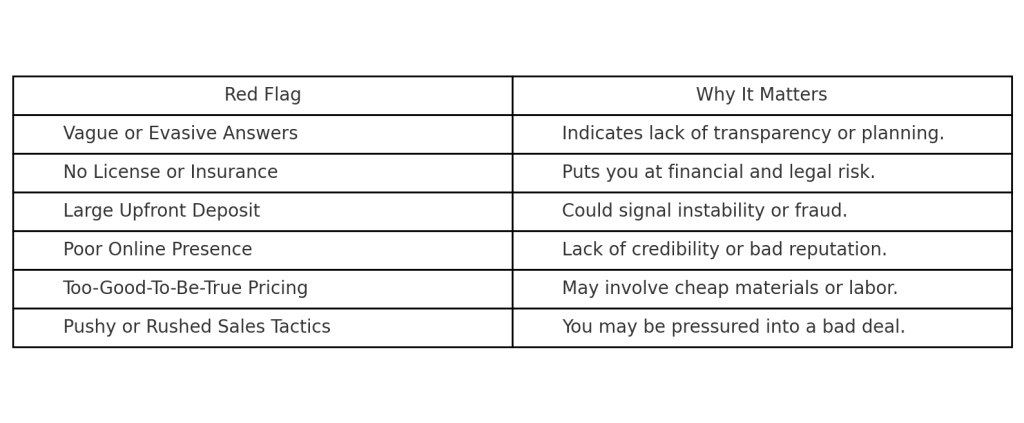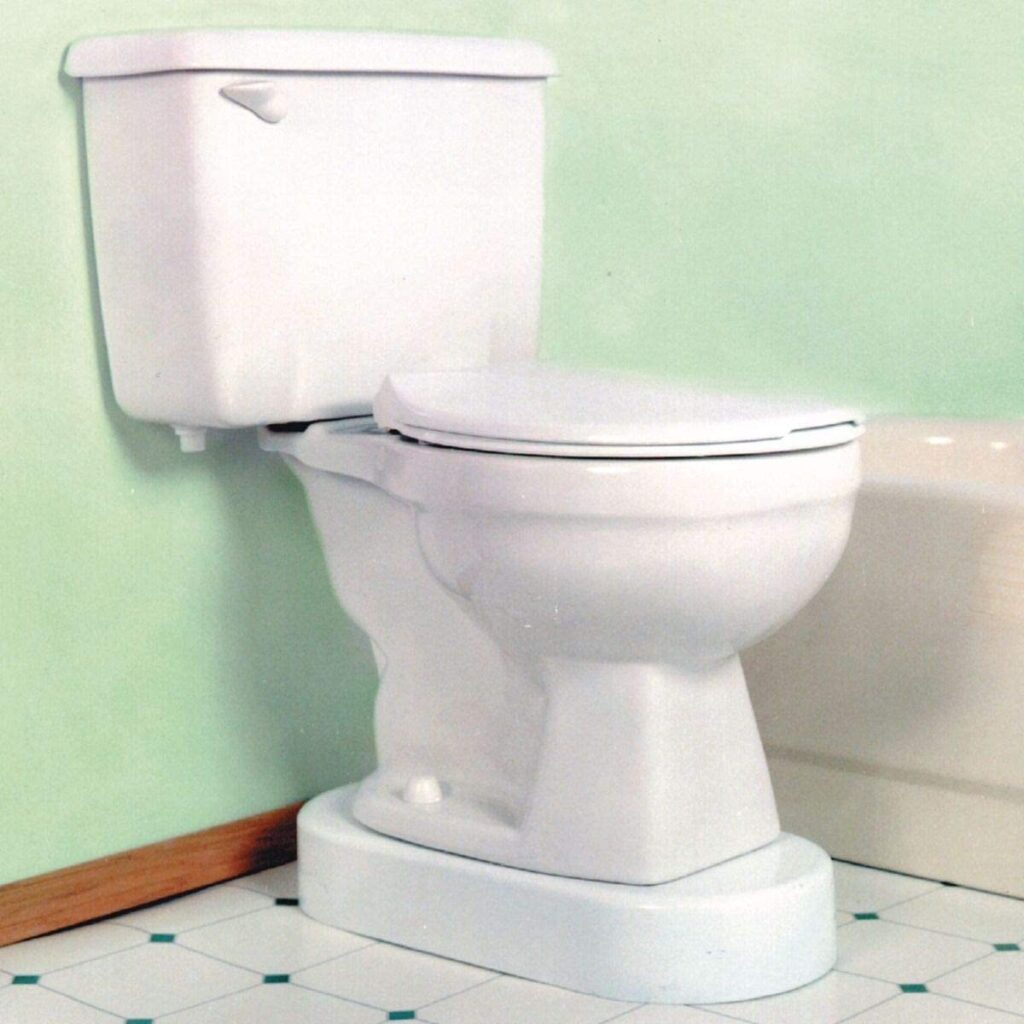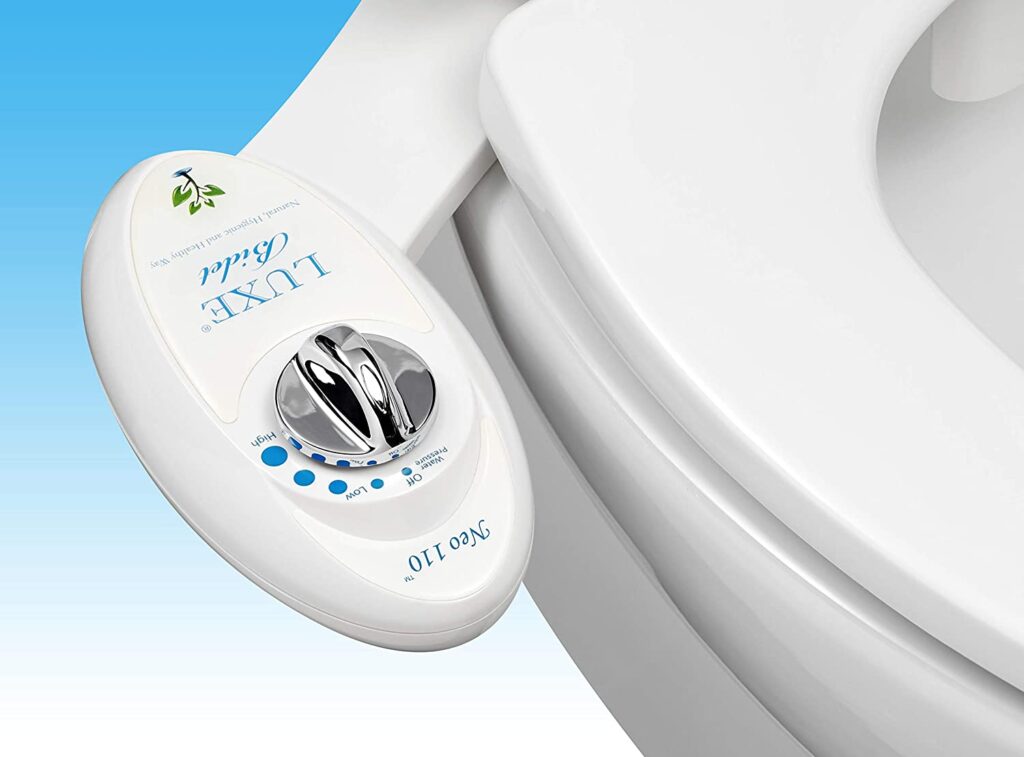Planning a bathroom remodel is exciting, but it can also feel like a lot to handle—especially if you don’t have the right team on board. Whether you’re updating a small powder room or doing a full makeover of your master bath, one thing is clear: hiring the wrong contractor can cause delays, surprise costs, and leave you with disappointing results.
That’s why picking the right bathroom remodeling contractor is just as important as choosing your tiles or vanity. The right pro can bring your vision to life, keep things on track, and stay within your budget—without all the stress.
In this guide, we’ll show you exactly how to find and hire a contractor you can trust. From red flags to important questions, we’ll help you make the right choices before you sign the contract.
Table of Contents
Why Choosing the Right Contractor Matters?
Choosing a contractor isn’t just about who offers the lowest price—it’s about who can deliver what they promise.
Hiring the wrong person could mean:
- Shoddy workmanship that leads to leaks or costly repairs later
- Unfinished jobs that drag on for months
- Surprise charges and poor communication
On the flip side, a reliable and experienced contractor helps you:
- Pull the proper permits and meet local building codes
- Stick to your timeline and budget
- Boost your home’s resale value with quality, lasting results
When done right, a bathroom remodel not only upgrades your space—it adds real value to your home. And it all starts with picking the right person for the job.
Step-by-Step Guide to Choosing a Bathroom Remodeling Contractor
Let’s break down exactly what you should do before hiring someone to work on your bathroom. Here are the first steps that can save you money and stress down the road:
1. Know What You Want First
Before you even start browsing contractor websites, get clear on your vision.
Ask yourself:
- What’s my ideal bathroom layout?
- Do I want a walk-in shower or a tub?
- What’s my overall style—modern, farmhouse, spa-inspired?
- What’s my realistic budget?
Having a basic plan or mood board helps you communicate exactly what you’re looking for and allows contractors to give you a more accurate quote.
🛠️ Pro Tip: Write down must-haves vs. nice-to-haves. This will come in handy if you need to adjust based on cost or timeline.
2. Ask for Recommendations
The best contractors often come by word of mouth.
Start by asking:
- Friends and family who’ve remodeled recently
- Neighbors in your area
- Local homeowner Facebook groups or community forums
Once you’ve got a few names, dig deeper online. Look up their:
- Google reviews
- Yelp ratings
- Houzz project galleries
Look for consistent feedback—good and bad—especially about timeliness, cleanliness, and how well they communicate.
3. Check Licensing and Insurance
This is non-negotiable. A professional contractor should be licensed to work in your state and carry proof of insurance.
Here’s what to ask for:
- License number (verify it with your state’s licensing board)
- Liability insurance, in case something gets damaged during the project
- Workers’ compensation, to protect you if someone is injured on-site
Never assume they have it—ask to see the documentation.
4. Review Portfolios and Past Work
A good contractor should be proud to show off their work—and you should never hesitate to ask.
Request:
- Before-and-after photos of recent projects
- References from past clients (bonus if they’re in your area)
Look for bathrooms that are similar in size, layout, and style to what you want. If all their work is ultra-modern and you’re going for a rustic farmhouse vibe, they may not be the best fit. Their past work should reflect the quality, creativity, and finish you expect in your own remodel.
🚱 Pro Tip: Check their website or Houzz profile for full project galleries—many reputable contractors showcase their best work online.
5. Ask the Right Questions
This is your home—and your money—so don’t hold back.
Ask questions like:
- What’s your estimated timeline?
- Do you use subcontractors, or is your team in-house?
- Who sources the materials—me or you?
- How do you handle cleanup and debris removal?
- Can I see a detailed, itemized estimate?
If a contractor seems annoyed by these questions or gives vague answers, that’s a sign they may not be transparent during the project either.
🗒️ A contractor who communicates well before the job starts is more likely to stay organized during the remodel.
6. Get Multiple Quotes
Even if you already like the first contractor you speak with, get at least 2–3 estimates.
Here’s why:
- It gives you a sense of the market rate
- You can compare pricing breakdowns (materials, labor, timeline)
- It helps you avoid being overcharged—or undercharged by someone cutting corners
Be sure you’re comparing apples to apples—same materials, same scope, same finishes. A cheaper bid isn’t always the better one if it means sacrificing quality or hidden add-ons later.
💡 Watch out for extremely low quotes—they often lead to upsells or rushed, subpar work.
7. Review the Contract Carefully
A contract is more than just paperwork—it protects both you and the contractor.
Your written contract should include:
- The full project timeline, with start and estimated end dates
- A clear payment schedule (avoid paying everything upfront!)
- A list of agreed-upon materials and fixtures
- What happens with unexpected changes (called “change orders”)
Don’t feel pressured to sign immediately. Take time to review it or even have someone else look it over. The right contractor will respect that.
Red Flags to Watch Out For
Not every contractor with a clipboard and a business card is a pro. While many professionals are reputable and skilled, there are a few warning signs that should instantly raise concern and make you reconsider who you’re trusting with your remodel.
Here are the top red flags to keep on your radar:
🚩 Vague or evasive answers when you ask for details
If a contractor can’t give you a clear timeline, cost estimate, or process explanation, that’s a big issue. Transparency and clear communication are must-haves.
🚩 No license or proof of insurance when requested
A legitimate contractor will have no problem showing documentation. If they dodge the question or make excuses, that’s a deal-breaker.
🚩 Asks for a large deposit upfront
Standard practice is a deposit between 10% and 30%. If someone asks for 50% or more before any work begins, they may not be financially stable or trustworthy.
🚩 Poor online presence or consistent negative reviews
If they have no reviews, outdated information, or recurring complaints from past clients, take it seriously. A good contractor should have a track record that you can verify.
🚩 Too good to be true pricing
If a bid seems significantly lower than others, it could mean they’re cutting corners on labor, materials, or quality—and you’ll pay the price later.
🚩 Pushy sales tactics or pressure to sign quickly
Respectable contractors will give you time to think over your decision. If you’re being rushed or pressured, it’s usually for their benefit, not yours.

You deserve someone who’s clear, communicative, and professional from the first call to the final walk-through. Don’t ignore your instincts—if something feels off, keep looking.
Bonus Tips for a Smooth Remodel
Once you’ve hired your contractor, you’re off to a great start—but a stress-free remodel depends on more than just who you hire. Even the best contractor needs a clear plan, open communication, and accountability from both sides.
Here are some tips to make sure everything runs smoothly:
Set Clear Expectations From Day One
Start with a pre-project meeting to go over the schedule, daily work hours, access to the bathroom, parking, noise concerns, and anything else that could affect daily life. If you have pets or small children, be sure the crew knows what to expect.
Put everything in writing—including which materials you’re sourcing vs. what the contractor is responsible for. This avoids confusion or unexpected costs mid-project.
Visit Ongoing Projects If Allowed
Before signing the contract, see if your contractor is working on other homes nearby. A short visit can show you how organized they are, how their team operates, and whether they maintain a clean, professional site.
During your own remodel, try to drop in occasionally (even just virtually through photos) to check on progress and quality.
Communicate Regularly and Document Everything
Touch base daily or a few times per week. Even quick check-ins can catch small issues before they turn into big ones.
Save every conversation about materials, changes, or deadlines in writing. Email is great for this, and it gives you a solid record in case of disputes.
Bonus: Take photos throughout the project. They’re useful for before-and-after comparisons, warranties, and resale value down the line.
By staying involved and organized, you’ll feel more confident and get better results—without unnecessary stress.
Final Thoughts
When it comes to remodeling your bathroom, hiring the right contractor is one of the most important decisions you’ll make. It’s not just about finding the cheapest quote—it’s about choosing someone who will respect your home, your time, and your vision.
Take the time to:
- Do your research
- Ask questions
- Read reviews
- And most importantly, trust your gut
A great contractor will make your bathroom remodel feel exciting, not stressful. Don’t rush the process—it’s your space, your money, and your peace of mind on the line.
Quick FAQ:
Q1: How much should I pay a bathroom contractor upfront?
Most reliable contractors request 10% to 30% of the total cost as a deposit. This covers scheduling and initial materials. Avoid any contractor who asks for the full amount upfront.
Q2: Is it better to hire a general contractor or a bathroom specialist?
It depends on your project. A general contractor is great for full remodels involving plumbing, electrical, and permits. A bathroom specialist may be faster and more budget-friendly for smaller or cosmetic updates.
Q3: What’s a realistic timeline for a bathroom remodel?
A basic remodel usually takes 2–4 weeks. Complex jobs involving plumbing changes, inspections, or custom fixtures may extend to 5–6 weeks or more.
Q4: Should I buy the materials myself or let the contractor handle it?
You can do either. Buying yourself gives you control over cost and style. But letting the contractor handle it often ensures better bulk pricing and fewer delays, especially for specialty items.
Q5: Do I need a permit for a bathroom remodel?
Yes—if plumbing, electrical, or structural work is involved, permits are required. A reputable contractor will know the local codes and should handle the permit process for you.
Q6: What should be included in the contractor’s quote?
A good quote includes:
-
Labor and materials
-
Project timeline
-
Payment schedule
-
Any demo work or disposal fees
Make sure it’s itemized so you can compare quotes easily.
Q7: What’s the difference between a bid and an estimate?
An estimate is a rough idea of cost, subject to change. A bid is a fixed price for the full project based on detailed plans. Always ask for a written bid before signing a contract.
Q8: What if the contractor finds issues mid-project?
Unexpected issues (like water damage or old plumbing) are common. Your contract should include a change order clause—which explains how changes will be approved and priced before moving forward.
Q9: Can I live at home during the remodel?
In most cases, yes—but expect noise, dust, and limited access to your bathroom. If it’s your only bathroom, discuss a daily use plan with your contractor to avoid major inconvenience.
Q10: How do I know if a contractor is the right fit for me?
Pay attention to how they communicate. Are they responsive? Do they listen? Do they explain things clearly? A contractor who respects your time, budget, and ideas is more likely to deliver the results you want.






